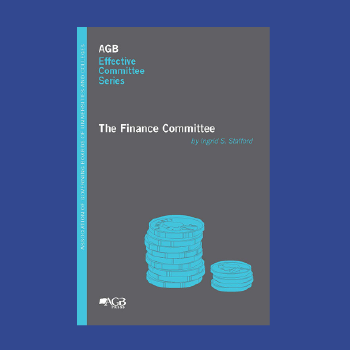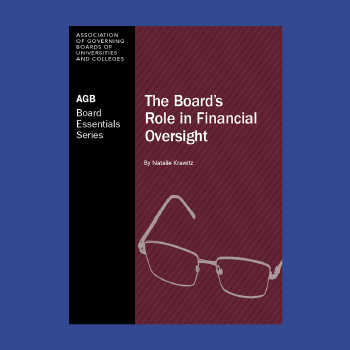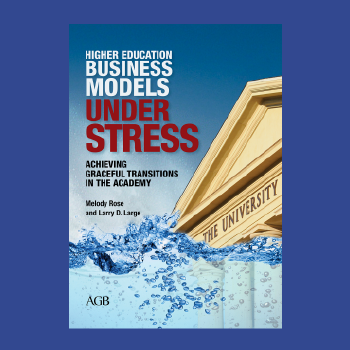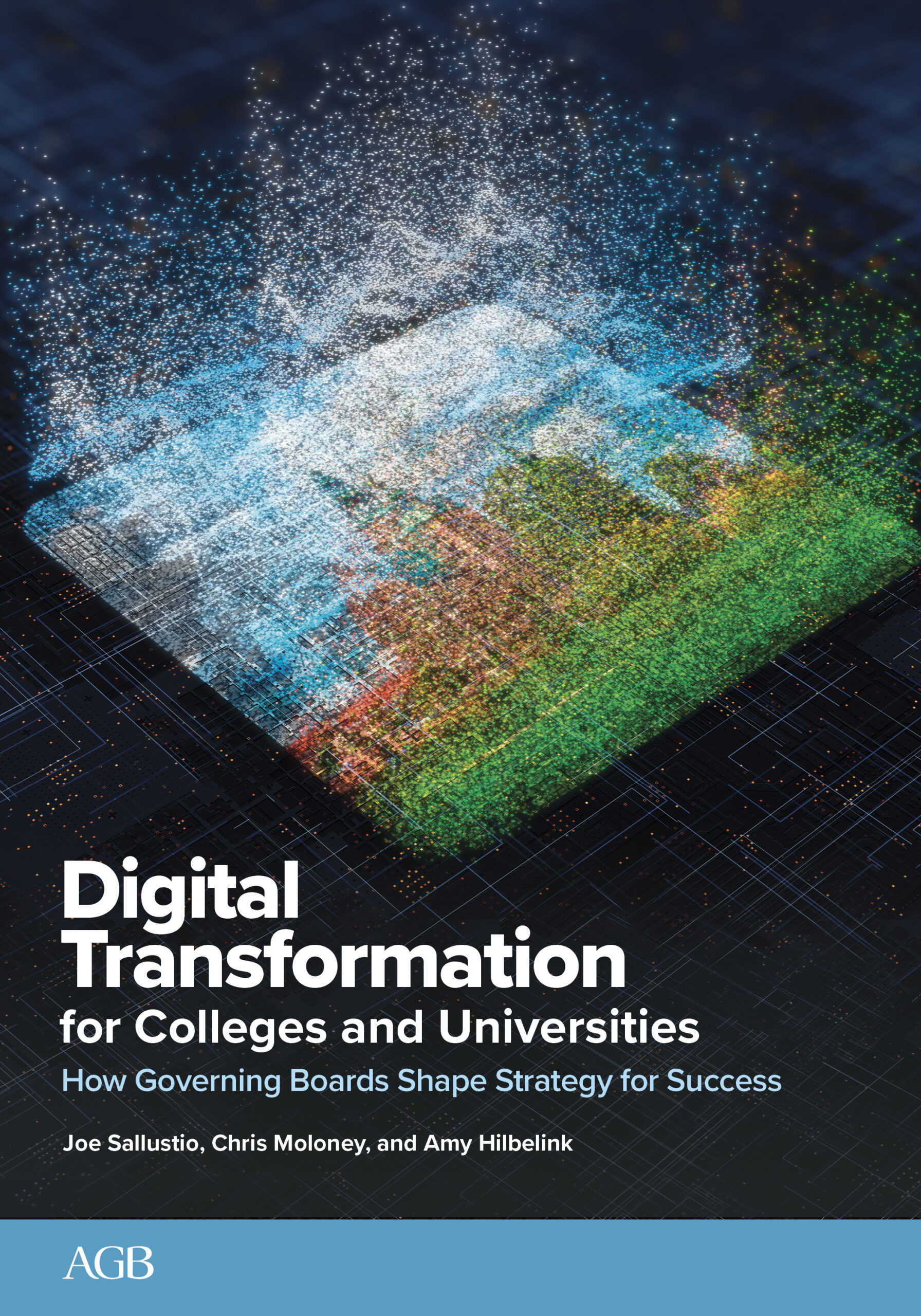Why this is important.
The finance committee is of paramount importance in college and university governance. It plays a key role in ensuring the institution’s future by making certain all resources are secured, appropriately allocated, and adequately protected, maintained, and renewed. The finance committee often takes the lead on difficult decisions regarding the academic portfolio, provision of services, repurposing of facilities, and the like.
In today’s economic landscape, the demand has never been greater for responsive, dynamic finance committees. AGB empowers financial committee members to fulfill their fiduciary responsibilities by critically assessing the best method for achieving long-term institutional health.
Sources:
The Finance Committee by Ingrid S. Stafford, AGB 2013
The Board’s Role in Financial Oversight by Natalie Krawitz, AGB 2015
How can finance committees surround themselves with the right expertise? Robert Thomas speaks to the importance of financial acumen on the board at the University of Tulsa, a recipient of the 2025 John W. Nason Award for Board Leadership.
Questions for boards.
Click below to reveal key questions for your board to consider:
Planning and Processes
Consequential Questions:
- Is there a long-range strategic plan that includes a financial plan, and is the board regularly monitoring progress on that plan?
- Does our board practice due diligence in making major financial decisions?
- Does our institution have the capacity and the will to adapt to the changing world within and surrounding higher education and to respond to the financial ramifications thereof?
Sources:
The Finance Committee by Ingrid S. Stafford, AGB 2013
The Board’s Role in Financial Oversight by Natalie Krawitz, AGB 2015
Roles and Responsibilities
Consequential Questions:
- Does our board have confidence in the committees that are assigned financial management and oversight responsibilities?
- Does our board have a clear understanding of the institution’s current fiscal reality and its strategic financial issues?
- Is our board able to ask difficult questions of management and is it comfortable doing so?
Sources:
The Finance Committee by Ingrid S. Stafford, AGB 2013
The Board’s Role in Financial Oversight by Natalie Krawitz, AGB 2015
Key Metrics
Consequential Questions:
- Do our current assets support current liabilities? Is there adequate liquidity to meet obligations that will come due in the short term?
- How has the growth in tuition and fee revenue compared with general consumer inflation?
- What is the average amount of student-loan debt for graduating seniors? How does our data compare to that of our competitors?
- How is the institutional cost per degree changing over time so that our institution can monitor its efficiency and effectiveness with respect to this key student success outcome?
Sources:
The Finance Committee by Ingrid S. Stafford, AGB 2013
The Board’s Role in Financial Oversight by Natalie Krawitz, AGB 2015
Recommended resources.
We carefully curated these staff-picked resources for you:
The Finance Committee
2013
Ingrid S. Stafford
The Board’s Role in Financial Oversight
2015
Natalie Krawitz
Finance Committee Chair Toolkit
Toolkit
AGB and Huron
Higher Education Business Models Under Stress: Achieving Graceful Transitions in the Academy
2021
Melody Rose and Larry D. Large
Top Priority AGB and Board Agenda Items 2023–2024
Blog Post
Stephen T. Golding



















